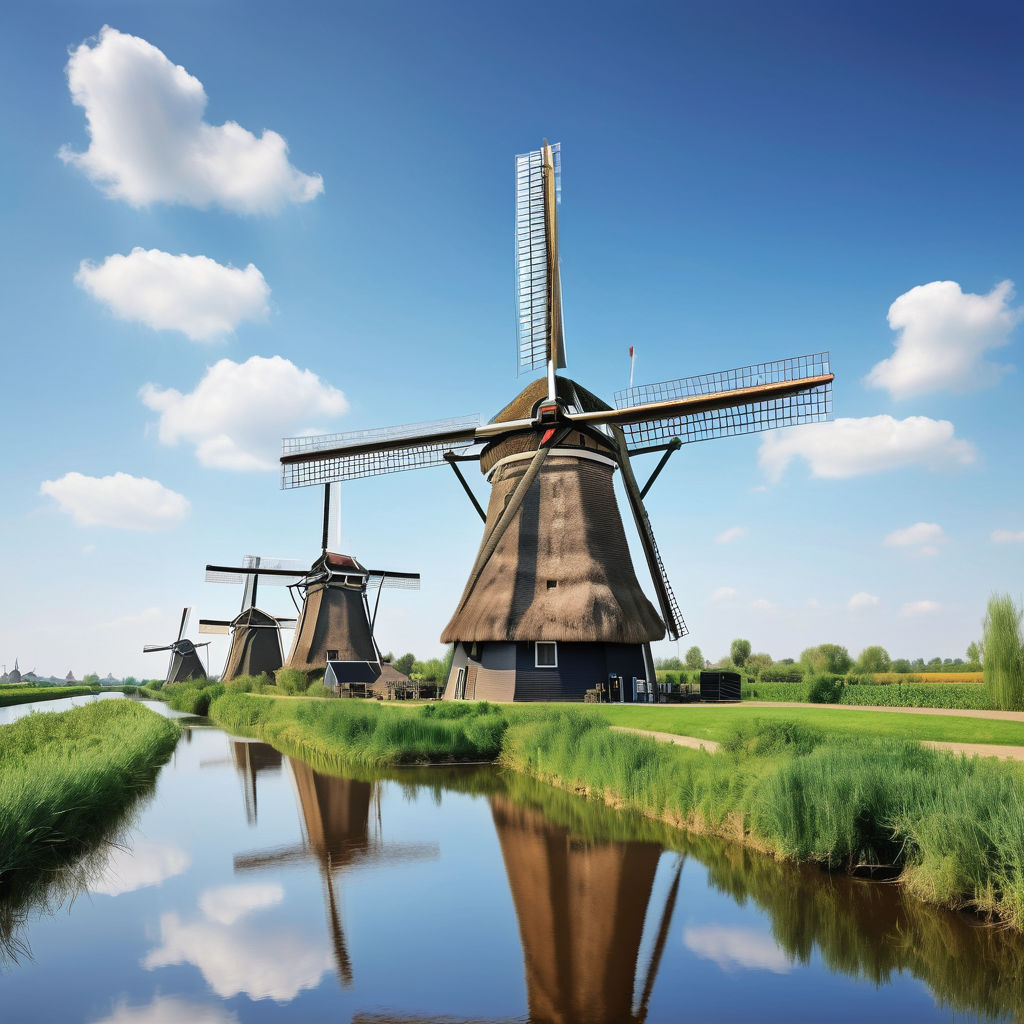Discover the Netherlands: A Blend of Tradition and Modernity
Exploring Dutch Culture, Social Dynamics, and Cross-cultural Understanding

Introduction to the Netherlands
The Netherlands, often referred to as Holland, is a country located in Northwestern Europe. It is bordered by Germany to the east, Belgium to the south, and the North Sea to the northwest. Major cities include Amsterdam (the capital), Rotterdam, The Hague, Utrecht, and Eindhoven. The Netherlands is known for its flat landscape, extensive canal systems, windmills, tulip fields, and cycling routes. The country's rich cultural heritage reflects its historical significance as a major trading and maritime power, with contributions to art, science, and human rights. The Dutch Golden Age produced renowned artists such as Rembrandt and Vermeer, and the country continues to be a hub of cultural innovation and tolerance.
Cross-national and Cross-cultural Understanding
The Dutch generally engage with other cultures with openness, curiosity, and a strong sense of pragmatism. The Netherlands' history as a trading nation and its diverse population have fostered a deep appreciation for cultural diversity and international cooperation. The country actively promotes cross-cultural understanding through various initiatives and programs. Significant cultural exchanges and educational programs highlight the Netherlands’ commitment to fostering global engagement. Institutions such as the Dutch Ministry of Education, Culture and Science and the DutchCulture organization promote Dutch culture internationally through events, exhibitions, and language courses. Additionally, the government supports scholarships and exchange programs, such as the Holland Scholarship and Erasmus+, which facilitate academic and cultural exchanges, fostering mutual understanding. International partnerships also enhance cross-cultural understanding. The Netherlands is an active member of international organizations such as the United Nations, the European Union, and NATO, promoting cultural cooperation and exchange. These partnerships facilitate student exchanges, collaborative research projects, and cultural festivals, strengthening the Netherlands’ cultural ties with the world.
Interactions and Social Dynamics
Interactions between the Dutch and foreigners are typically characterized by directness, openness, and a strong sense of equality. Dutch social behaviors are influenced by cultural values such as "gezelligheid" (coziness and conviviality), "tolerance," and "egalitarianism." These values are often reflected in the way the Dutch engage with outsiders. Social behaviors in the Netherlands emphasize respect and politeness in initial interactions, quickly becoming more informal and friendly. Greetings often involve a handshake and a smile, and among close acquaintances, a kiss on the cheek (usually three times) is common. Hospitality is a significant aspect of Dutch culture, and guests are often treated with great care and generosity, frequently invited to share meals and participate in social gatherings. Communication styles in the Netherlands are generally direct and straightforward. The Dutch value honesty and clarity in communication, often engaging in open and respectful discussions. Non-verbal communication, such as eye contact and body language, plays a significant role in interactions, adding to the overall expressiveness of conversations. Language plays a crucial role in facilitating interactions. Dutch is the official language of the Netherlands, while Frisian is also spoken in the northern province of Friesland. English is widely spoken and understood, especially among the younger generation and in urban areas. Multilingualism is valued and encouraged, especially in educational and professional settings.
Views on Dating and Relationships
Dating and relationships between the Dutch and foreigners are common and generally viewed positively. Dutch society is open-minded about cross-cultural relationships, seeing them as opportunities for cultural exchange and personal growth. However, cultural expectations and traditions can still influence dating dynamics. In Dutch dating culture, there is often an emphasis on mutual respect, equality, and personal compatibility. Relationships are typically pursued with a long-term perspective, and there is a strong focus on emotional connection and shared values. Gender roles are generally balanced, with both partners often contributing equally to the relationship. Cultural expectations and traditions, such as the importance of personal space and independence, can impact relationships. Understanding and respecting these cultural norms is essential for successful cross-cultural relationships in the Netherlands.
Marriage and Family
Marrying foreigners is widely accepted in the Netherlands, although it comes with certain social and familial considerations. Legal considerations for such marriages are straightforward, with clear regulations for international unions governed by Dutch civil law. Socially, Dutch families may initially have reservations about cross-cultural marriages due to concerns about cultural differences and social compatibility. However, acceptance typically increases as relationships develop and families get to know the foreign partner. Family plays a central role in Dutch culture, and marrying into a Dutch family often involves participating in family gatherings and traditions. Common practices in cross-cultural marriages include celebrating both Dutch and foreign traditions, creating a blended cultural environment. For example, a couple might celebrate Dutch holidays like King’s Day and Sinterklaas alongside holidays from the foreign partner’s culture.